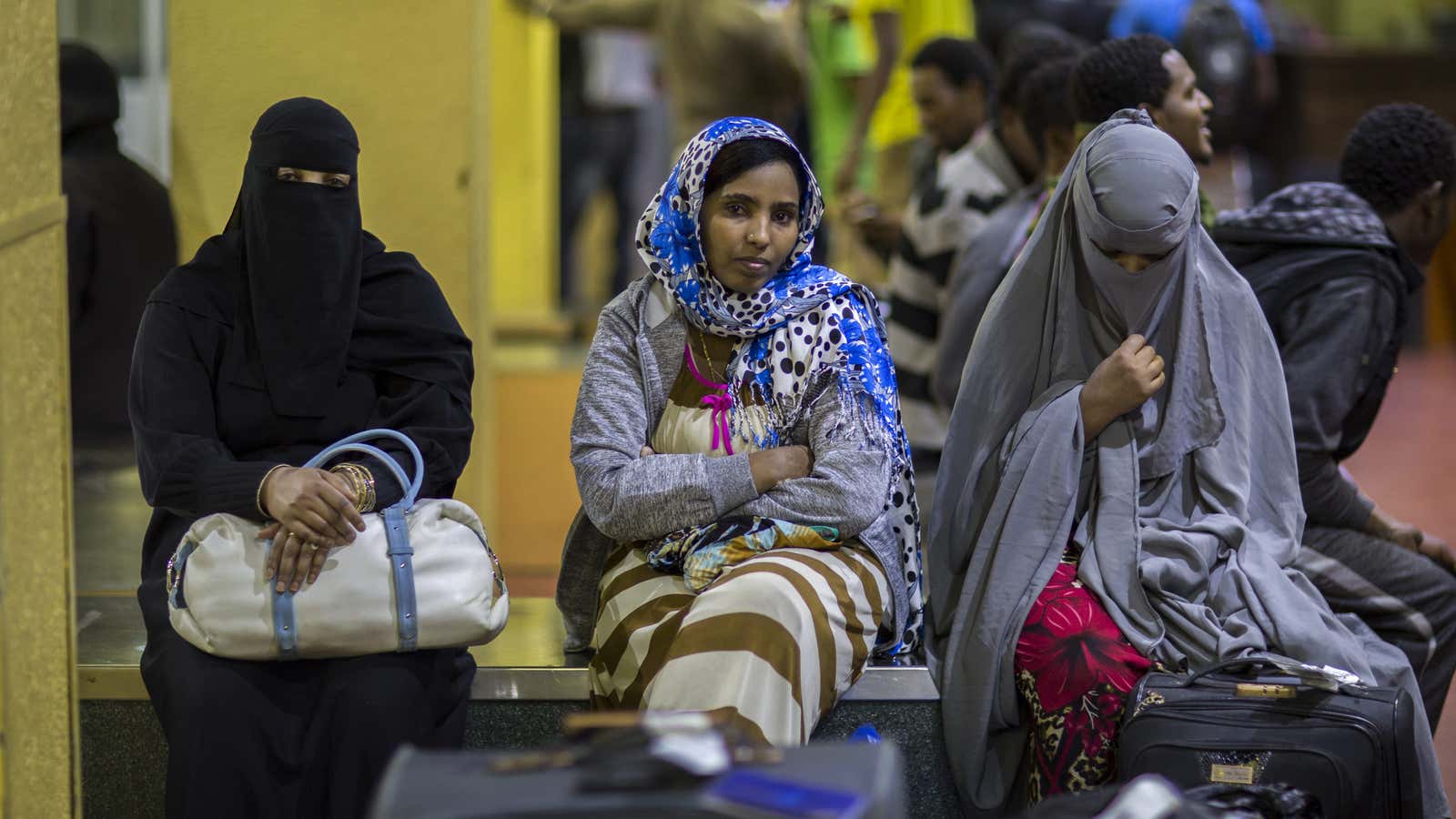Thousands of undocumented Ethiopian workers are being abruptly deported from the United Arab Emirates and Saudi Arabia back to Addis Ababa over the weekend in cargo planes.
The governments of both Middle East countries claimed the Ethiopians were vulnerable to spreading the coronavirus and have deported some with symptoms and many without—but not testing.
This week, Ethiopia’s health minister, Lia Tadesse confirmed the mass deportation, undermining the nation’s effort to reduce the rising number of COVID-19 cases in Ethiopia. There are now 74 positive cases of the virus and more than half of these are recent travelers to Dubai.
“Ethiopian workers in Saudi Arabia, UAE and Djibouti are being forced to flee to their country, a situation that is becoming a challenge to contain the virus,” said Tadesse.
More than 2,870 Ethiopian migrants were deported in the last month and Ethiopia expects to receive another 3,000 citizens in the next 15 days alone, according to the minister.
Many of the returnees are maids and domestic servants with low paid jobs. For years thousands of young Ethiopian women and men have trekked thousands of treacherous miles to find such work in the oil-wealthy Saudi Arabia while others have found their way to UAE or Qatar. But getting to these countries and finding work has also come with regular reports of physical mistreatment and exploitation by employers and sometimes not even being paid.
In 2016, Ethiopia was forced to ban workers from heading to the region because of similar allegations, but lifted the ban last year after putting mechanism in place to protect the workers with nations such as UAE, Qatar and Saudi Arabia
Little has changed, according to workers, most in their twenties, who recently returned and are currently kept at Bole Preparatory School, which is being used as a makeshift quarantine center for returnees to Addis Ababa.
Lemlem Gebregiorgis, 22, went to Saudi Arabia from Adama, southeast of Addis, last year after paying a commission to an agency which linked her to a job offer there. She returned to Ethiopia this month with barely enough to pay the commission fee she was forced to borrow from family members.
“I worked in Riyadh for a year and paid a commission to be able to go there. I wanted to help and support my family, help educate my siblings and support my aging parents. I returned to Ethiopia with nothing more than I took there with me. Not only was I ill treated, I had to change several employees and there is a habit of overworking us and negotiating to pay us at the end”.
While there have been deportations in the recent past the numbers are usually smaller. The United Nations is now calling for the suspension of the deportation operation in the midst of the coronavirus pandemic.
“Large-scale migratory movements which are not planned make the transmission of the virus much more likely to continue. We are therefore calling for the temporary suspension of large-scale deportations,” Catherine Sozi, the UN Resident and Humanitarian Coordinator for Ethiopia said.
Last week, Human Rights Watch, in its statement, disclosed that Covid-19 is posing a serious risk to populations in closed institutions such as immigration detention centers found in Gulf Cooperation Council (GCC) countries.
“People in immigration detention in some of these countries pending deportation should be given alternatives to detention amid health risks and global travel restrictions brought on by the COVID-19 pandemic” the human rights group said in a statement.
African migrants in Guangzhou in China have been blamed for the coronavirus spread and mistreated which has led to a major China-Africa diplomatic row.
Sign up to the Quartz Africa Weekly Brief here for news and analysis on African business, tech and innovation in your inbox
